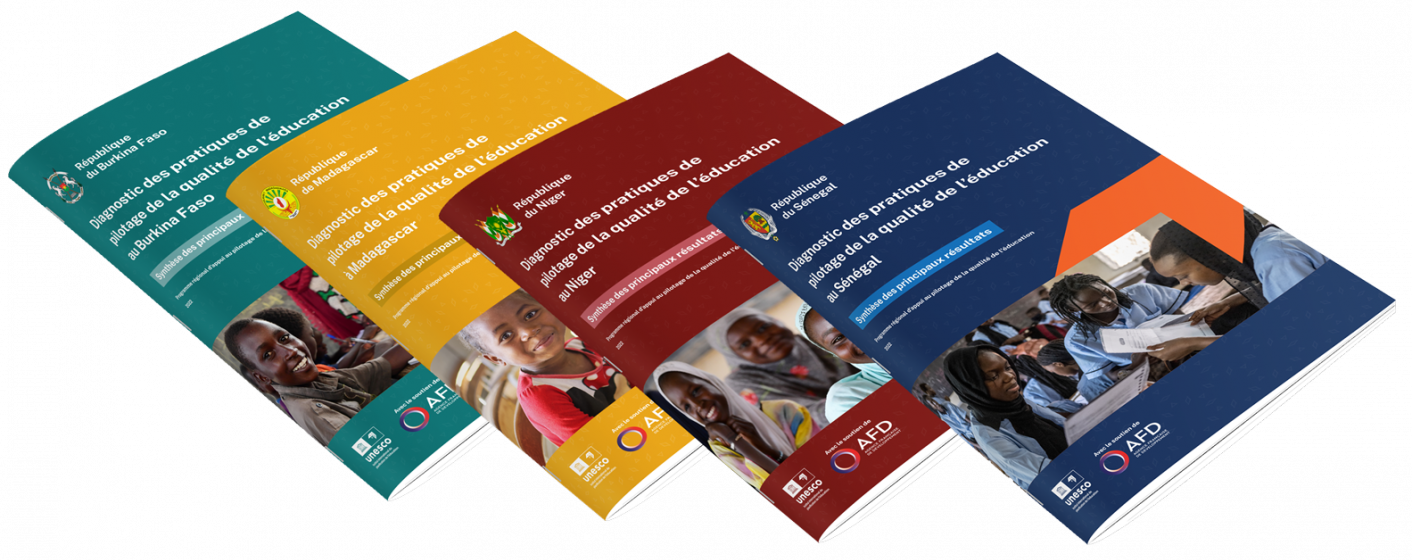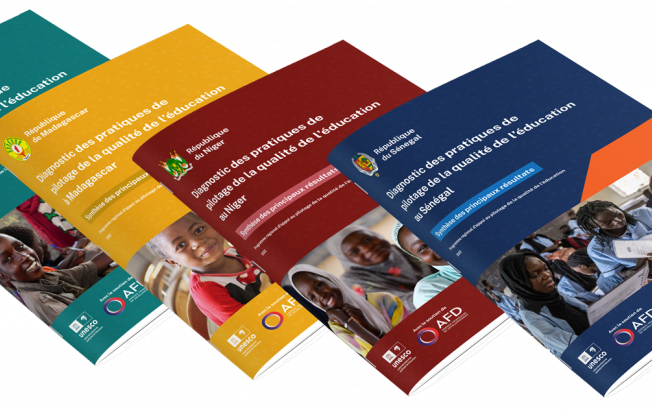Analysis of the management of the quality of education: persistent problems and ways to solve them
For the past five years, IIEP-UNESCO Dakar’s Education Quality Management Support Programme, with technical and financial support from the French Development Agency (AFD), has been assisting participating countries in diagnosing their education quality management practices. Burkina Faso, Niger, Madagascar and Senegal have already completed this exercise and the support is currently being extended to Burundi, Cameroon, Côte d'Ivoire and Togo. Let’s take a look at the initial results.
Improving implementation capacities
How do education systems actors manage the quality of education in basic education? Research conducted by the program found that while countries are relatively good at making diagnoses, the challenge lies mainly in their capacity to implement what is planned and in their ability to learn from past experiences.
Countries tend to change their policies when the desired objectives are not achieved, without paying sufficient attention to the issues of monitoring implementation, assessing the effects of the action and regulation. However, continuing to carry out reforms without improving the capacity of education systems to carry out these two management functions will not bring more results, as it is clear that in the end, what is planned is not implemented.


